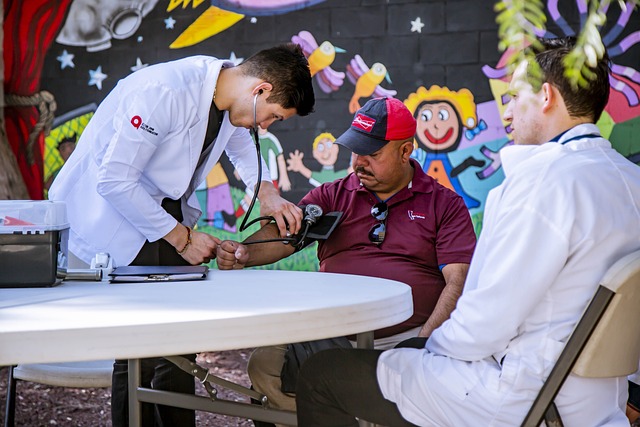When parents and grandparents travel to Canada on a Super Visa Program, families look forward to enjoying special moments together — birthdays, holidays, or simply the joy of living under one roof again. But behind these beautiful plans lies a critical responsibility: preparing for unexpected medical emergencies.
Super Visa Insurance is more than just a visa requirement. It’s a vital layer of protection that ensures your loved ones are not left vulnerable in case of serious health issues. One of the most pressing concerns families have is: “What happens if my parents or grandparents are hospitalized for a long time in Canada?”
Understanding how Super Visa Insurance handles long-term hospitalization can give families peace of mind, financial clarity, and the ability to focus on care instead of costs.
Why Long-Term Hospitalization Coverage Matters
Healthcare in Canada is excellent, but for visitors, it can also be very expensive. A short hospital stay can cost thousands of dollars, and a long-term hospitalization can quickly multiply these expenses.
For example, an emergency hospital stay of just a few days may cost between CAD $3,000 and $5,000. But if someone needs to stay longer — weeks or even months — the total can easily reach tens or even hundreds of thousands of dollars.
Super Visa Insurance is designed to handle these costs, covering emergency medical treatment and extended hospital stays, as long as the treatment is medically necessary and falls within the policy’s coverage.
What’s Included in Hospitalization Coverage
Super Visa Insurance policies typically include comprehensive medical emergency coverage, which covers hospitalisation expenses, including long-term stays. While each insurer may have different rules, most plans cover the following major expenses:
- Room and board in the hospital (usually semi-private rooms)
- Emergency medical treatment and specialist fees
- Nursing and physician services during the hospital stay
- Diagnostic tests, X-rays, and lab work
- Prescription drugs administered during hospitalisation
- Ambulance services to and from the hospital
- Medical equipment required during recovery
If your parent or grandparent is admitted to the hospital for an extended period, the insurance company pays these costs directly to the hospital (subject to coverage limits), reducing your out-of-pocket burden.
Duration of Coverage for Long-Term Stays
A major advantage of Super Visa Insurance is its minimum coverage requirement of one year with at least $100,000 in medical coverage. This extended coverage is exactly why the Canadian government requires it — to ensure visitors are protected for long durations if needed.
Many families choose coverage limits of $150,000 or $300,000 to increase financial protection. This can make a crucial difference when long-term care is involved. A longer hospital stay due to surgery, recovery from an accident, or a sudden illness can be managed without disrupting the family’s finances.
Pre-Authorisation and Direct Billing
When a long hospital stay is required, most insurance providers use a pre-authorisation process. This means that once the hospital contacts the insurer, the insurer assesses the medical situation and confirms direct payment to the hospital.
Benefits of pre-authorisation and direct billing include:
- Families don’t need to pay large amounts upfront.
- Hospitals and insurers coordinate billing directly.
- Claims are processed faster because everything is documented from the start.
- There’s less stress for family members managing logistics.
This process can be a huge relief in a situation where the focus should be on your loved one’s recovery rather than bills and paperwork.
Coverage for Intensive Care and Rehabilitation
Some hospitalisations involve intensive care or post-treatment rehabilitation. Super Visa Insurance plans generally cover:
- Intensive Care Unit (ICU) charges if medically required
- Extended nursing care during recovery
- Medications and tests needed throughout the stay
- Transport to a rehabilitation facility if necessary and covered
If rehabilitation services extend beyond the hospital stay, some plans may provide partial coverage, while others may not. It’s important to review the policy to understand exactly what’s included and for how long.
What Happens If the Coverage Runs Out
Super Visa Insurance has a maximum coverage limit. If a hospitalisation exceeds this amount, the family may be responsible for paying the remaining costs. This is why many families opt for coverage higher than the required $100,000 minimum.
For example:
- A $100,000 plan may be enough for moderate hospitalisation.
- A $300,000 plan offers far more protection for serious or prolonged medical events.
You can also extend or renew coverage before it expires, as long as your parent or grandparent remains in Canada legally.
How Pre-Existing Conditions Affect Hospitalization
Pre-existing conditions can affect how long-term hospitalisation is covered. Many Super Visa Insurance plans offer coverage for stable pre-existing conditions, meaning the condition has not changed or worsened for a certain period before arrival.
If a hospital stay is related to a covered pre-existing condition, the insurer typically pays for the treatment as per the policy terms. If it’s excluded, the costs may not be fully covered.
Families should be transparent about medical history during the insurance application. This ensures the policy reflects the right level of coverage and avoids disputes later.
Medical Repatriation and Return to Home Country
In some long-term hospitalisation cases, if continued treatment is required and medically safe, the insurance may cover medical repatriation — the cost of transporting the patient back to their home country for further care.
This can include:
- Cost of air ambulance or medically escorted flight
- Coordination with hospitals in both countries
- Travel for a companion if necessary
Repatriation can save costs and allow your loved one to receive care in familiar surroundings, but it must be approved and arranged through the insurance provider.
Handling Emotional and Practical Challenges
Long-term hospitalisation isn’t just about finances. It can be emotionally challenging for the entire family. Super Visa Insurance helps ease the practical stress of managing medical costs so that families can focus on supporting their loved ones.
Many insurers also offer assistance services, such as 24/7 helplines, translation support, and coordination with medical facilities. These can be extremely helpful in navigating the Canadian healthcare system.
Why Choosing the Right Coverage Matters
When selecting a Super Visa Insurance plan, many families look at price first, but for long-term hospitalisation, the quality of coverage matters much more than just cost.
Here are a few tips:
- Choose a coverage limit that’s realistic for major medical events.
- Review pre-existing condition clauses carefully.
- Ensure the insurer offers direct billing with hospitals.
- Check if rehabilitation and repatriation services are included.
- Choose providers with a strong track record of claims support.
A Realistic View: Planning for the Unexpected
No one wants to imagine their parents or grandparents in a hospital for an extended period. But being prepared doesn’t mean being pessimistic — it means being responsible and ensuring your family is protected if the unexpected happens.
A strong insurance plan can turn what could be a devastating financial situation into a manageable one. It provides stability, access to quality care, and peace of mind.
If you’re planning to bring your parents or grandparents to Canada under the Super Visa program, don’t settle for the bare minimum. Choose a Super Visa Insurance plan that truly protects your family in case of long-term hospitalization. Compare trusted providers today and give your loved ones the care and security they deserve — without financial stress.


